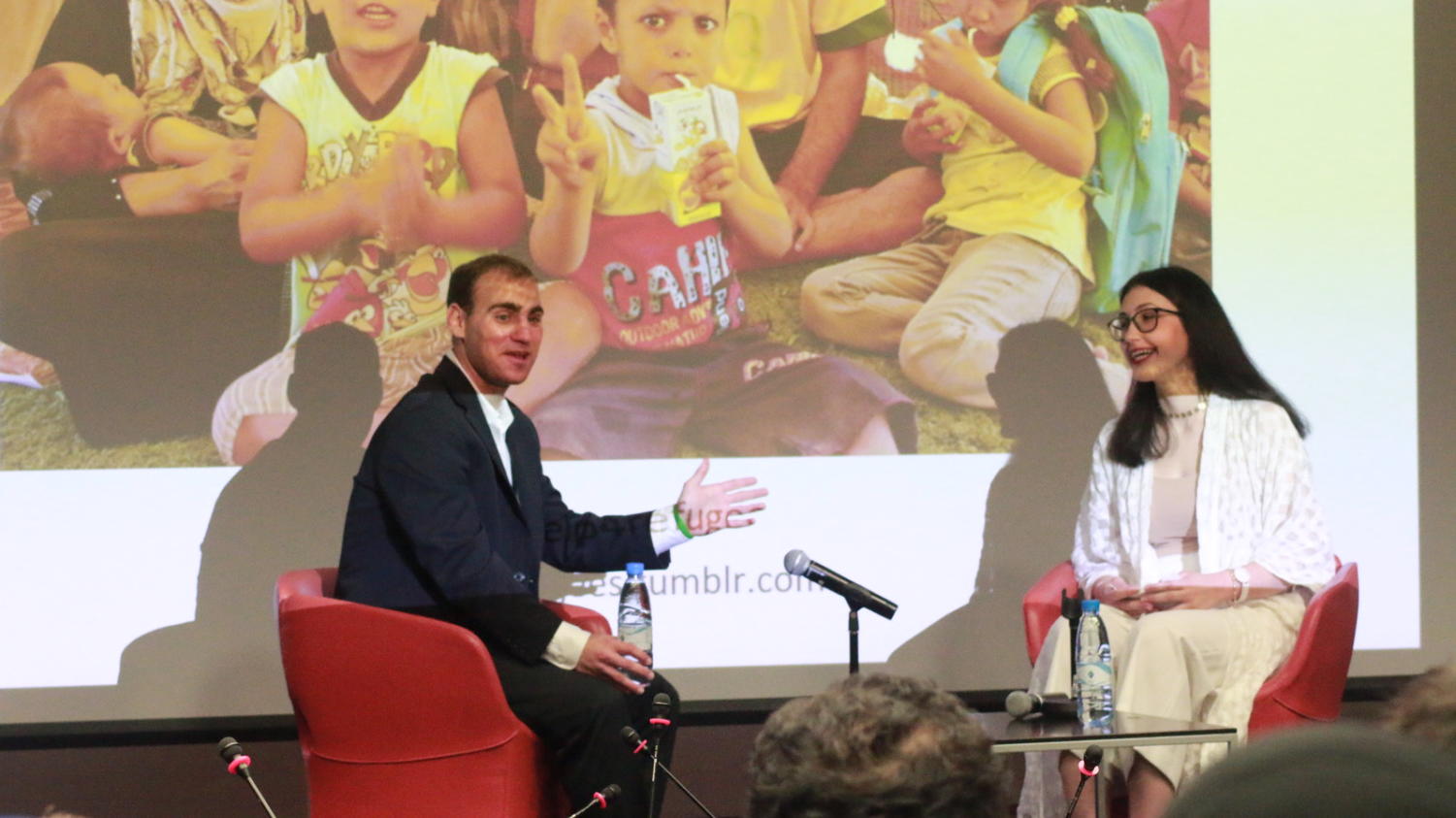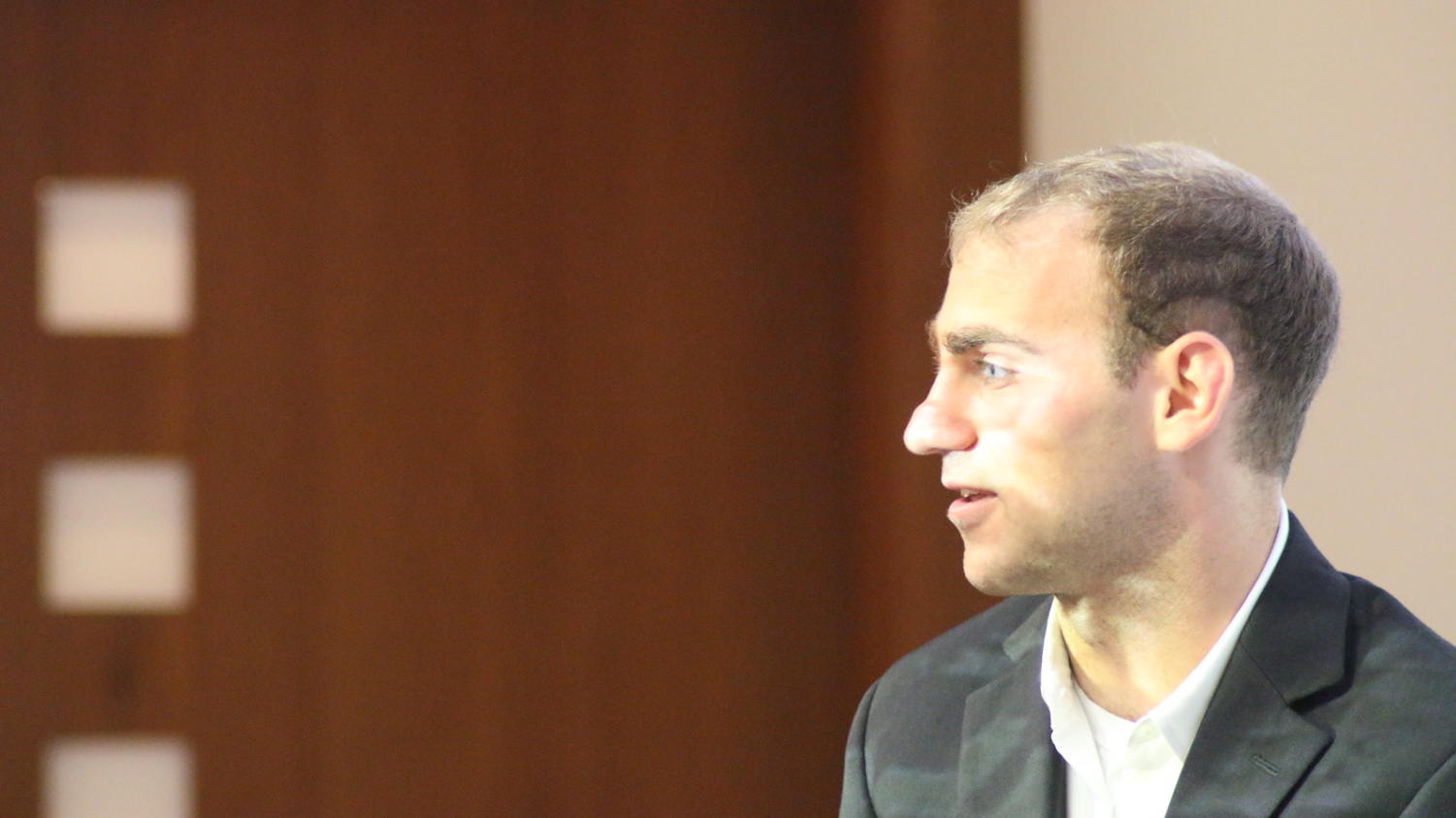Humanitarian Jordan Hattar discusses Syrian crisis at CMU-Q

When humanitarian Jordan Hattar was last in Syria, a little kid asked him: “When you go around speaking, do people really care about us? It feels like the opposite.”
Hattar was invited to share his experiences and impressions of the current state of the Syrian refugee crisis on Oct. 22 at Carnegie Mellon University in Qatar. Now 25, Hattar became interested in humanitarian issues after he took an Arabic language class in high school in Central Coast, California. The source of his inspiration was his Arabic teacher who would talk about Syria and the Arab Spring for the first 15 minutes of every class.
“One day after class, I went to get extra credit, and she was crying… that was probably the moment, if I had to look back, that really changed my life,” Hattar said, explaining how his teacher’s cousins had been killed in Damascus. This moment motivated the young man to devote his life as a humanitarian and start his website, help4refugees.org.
Help4Refugees raises awareness about the Syrian crisis by sharing Jordan’s work in refugee camps, and allows individuals to donate to a cause that funds mid-wife training and nursing facilities in Idlib, Syria, all of which is run through the non-profit organization, Visions Made Viable. The organization is Jordan’s fiscal-sponsor, which gives his organization non-profit charity status.

When Hattar was a university student, he took a semester off and travelled to Jordan, where he had heard of a refugee camp called Zaatari, named after a prominent family in the Levant, Al Zaatari. He said he became a self-taught journalist in order to gain access to the camp.
Hattar is proud of the progress the camp has undergone in the past five years. When he first travelled there in 2012, the camp had one school. Now, there are 11. But more imperative than education is the need for housing in these camps, according to Hattar.
“They said we can’t keep living in tents; they kept saying [they need] caravans,” said Hattar.
In response, Hattar partnered with the United Nations High Commissioners for Refugees in order to fundraise and provide caravans for the families.
Meanwhile, Hattar received a master’s degree in international relations and politics from the University of Cambridge in 2016. He then interned for Michelle Obama’s Reach Higher initiative in the White House.
“The reason I wanted to get into the White House with President Obama is that I wanted to share some of these stories… I really do think what’s lacking is a connection; it’s this ‘us vs. them’ thinking,” stressed Hattar, adding that “putting a human touch to the Syrian conflict is what I’m trying to do.”
In his talk at CMU-Q, Hattar also highlighted the significance of making a difference to these families’ lives.
“Someone in the camp told me that delivering these caravans is like putting a drop in the ocean, and I remember being devastated for a couple days,” said Hattar. But his friend disagreed, telling Hattar that, “it might just be a drop in the ocean, but that one drop could be someone’s whole ocean.”
To illustrate this, Hattar called a physician and surgeon practicing in northern Syria, via Skype.
The Syrian doctor works with the Syrian American Medical Society in an underground hospital that was created to protect their medical staff from attacks.
He highlighted many of the challenges they experience on a day-to-day basis, such as lack of funding and security protection. These issues have resulted in the loss of colleagues, either due to death or resignation.
But he said he does not believe in leaving his homeland.
“It’s my duty to help my Syrian people and to do my humanitarian duty and most importantly… to stay with my people in Syria and not leave them when they are in need for me. As Syrian people, if we leave our home, we will lose it forever,” he said.
While writing his master’s thesis, Hattar came to the conclusion that “genocide isn’t spontaneous. It starts by saying that my world is better without you in it… so we have to find creative ways to fight injustice in our communities.”
Correction: Nov. 3, 2017
The names and details of Hattar’s high school Arabic teacher and the doctor from northern Syria have been redacted to protect their and their families’ safety, at the request of Hattar.












